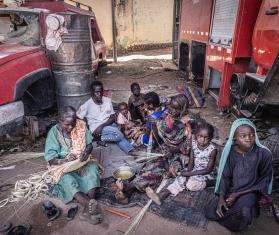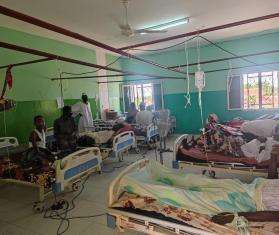In the Darfur region, where the violence has taken an ethnic dimension, between 70 to 80 percent of health facilities are no longer functioning due to the lack of critical supplies and medical staff. There is a widespread shortage of critical supplies such as vaccines, nutrition commodities, and HIV medications, as well as a poor disease surveillance system. At the same time, overcrowded and dire conditions in gathering sites and camps exacerbate the risk of disease outbreaks, while people with chronic conditions are struggling to access the care and medicines they need to survive.
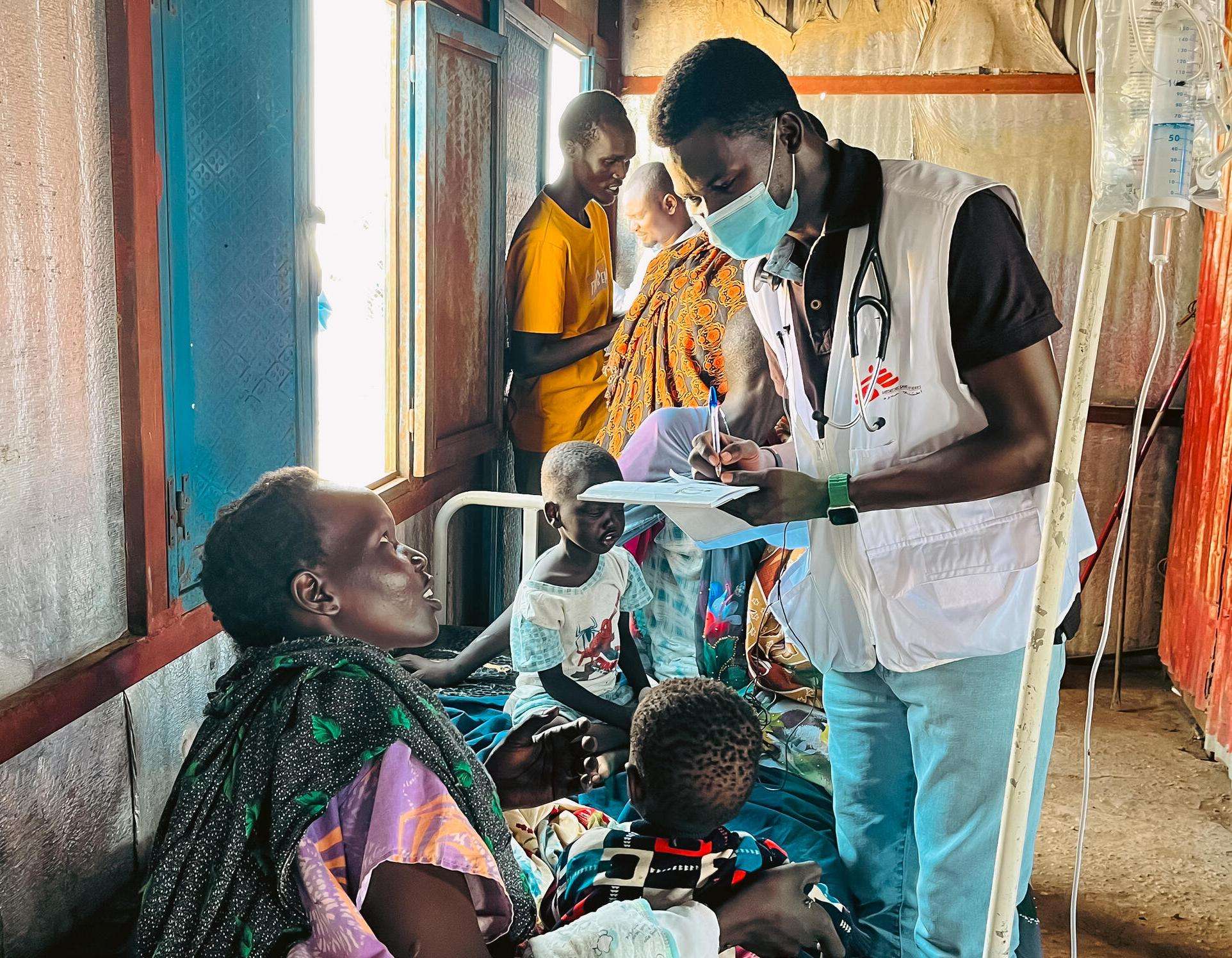
Sudan 2023 © Ahmad Mahmoud/MSF
Sudan
In April 2023, intense fighting broke out across Sudan, including Khartoum and the Darfur region. MSF teams are providing medical care for people affected by this latest surge of conflict and other crises.
Sudan: Civilians devastated by heavy fighting in El Fasher
May 15, 2024—Intense fighting is having a devastating impact on civilians in El Fasher, the capital of Sudan's North Darfur state, Doctors Without Borders/Médecins Sans Frontières (MSF) medical teams are warning, calling for all sides to ensure the protection of civilians, medical facilities and medical personnel. "Until now, North Darfur had been a relatively safe haven compared to other parts of Darfur," said Dr. Prince Djuma Safari, MSF deputy medical coordinator in El Fasher. "Now, there are snipers in the streets, heavy shelling is taking place, and nowhere in the city is safe at all."
Read more
Our work in Sudan
Doctors Without Borders/Médecins Sans Frontières (MSF) continues to respond to multiple health issues during a turbulent year in Sudan, where the health care system is on the verge of collapse amid a devastating, ongoing conflict.
1f39.jpg?itok=OvpJsOLI)
What's happening in Sudan?
For a year, large parts of Sudan have been experiencing ongoing violence, including intense urban warfare, gunfire, shelling, and airstrikes. The health system, already fragile before the conflict started, is struggling to cope with existing and emerging medical needs while facing overwhelming pressure from the destruction and looting of health facilities, acute shortages of utilities and medical supplies, and under-resourced health staff who are overworked without pay. As a result, people face significant challenges accessing medical care throughout the country. By the time many are able to access care, their condition has become critical.
%20(1)4fc1.jpg?itok=XKB6Sa6K)
Sudan crisis response
How MSF is responding to urgent needs inside Sudan and in neighboring countries.
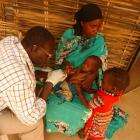
How we're helping in Sudan
MSF teams in Sudan provide emergency treatment, surgical care, mobile clinics for displaced people, treatment for communicable and non-communicable diseases, maternal and pediatric health care, water and sanitation services, and donations of medicines and medical supplies to health care facilities. We also provide incentive pay, training, and logistical support to Ministry of Health staff who have gone overworked and underpaid for months, and we continue some of our medical activities that were in place before the start of the war.
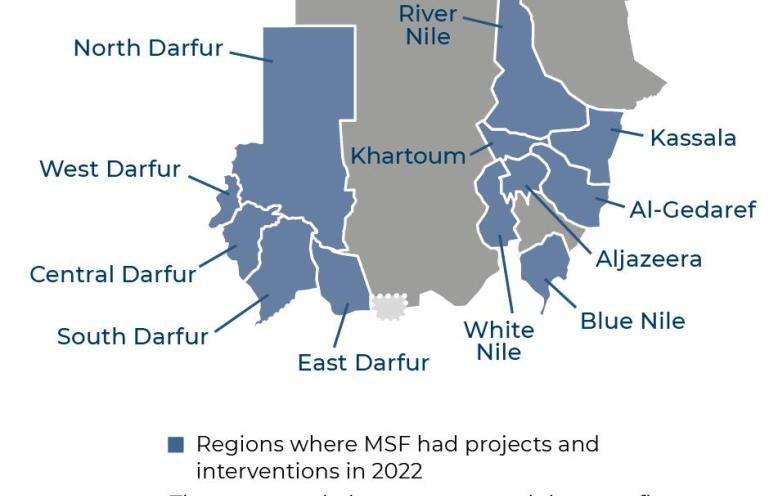
How we're helping
586,800
Outpatient consultations
4,260
Children admitted to inpatient feeding programs
350
Tons of medical supplies delivered
1,950
Births assisted
230
Newborns admitted to hospitals
*Data from MSF International Activity Report 2022
More news and stories
Learn about MSF’s journalistic roots and our commitment to bear witness and speak out about the plight of the people we treat.
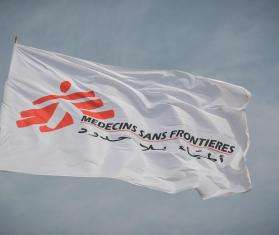
News May 12, 2024
Sudan: Airstrike near pediatric hospital in El Fasher kills two patien...
Read MoreLearn about MSF’s journalistic roots and our commitment to bear witness and speak out about the plight of the people we treat.
